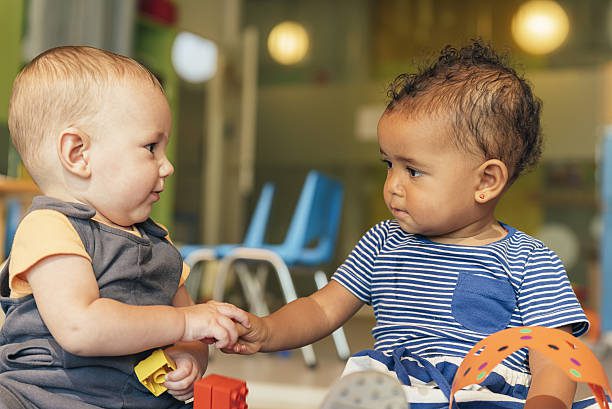Nurturing Growth: Understanding Executive Function in Toddlers

As parents, we witness the incredible journey of our toddlers’ development. One aspect that plays a pivotal role in their overall growth is executive function. But what exactly is executive function, and how does it impact our little ones? In this blog post, we’ll explore the concept of executive function in toddlers and discuss ways to support its development.
Defining Executive Function
Executive function refers to a set of cognitive skills that enable individuals to plan, organize, initiate, and complete tasks. It encompasses abilities such as attention control, working memory, inhibitory control (impulse control), and cognitive flexibility. In toddlers, these skills are still in their infancy, but they lay the foundation for future success in academics and life.
Attention Control
Toddlers are naturally curious, but their attention spans are limited. They may struggle to focus on a single activity for an extended period. This is perfectly normal. Encourage activities that captivate their interest while gradually introducing tasks that require sustained attention, like reading books or completing puzzles.
Working Memory
Working memory is the ability to hold and manipulate information in one’s mind over a short period. For toddlers, this may involve remembering multi-step instructions, like putting away toys and then washing hands. Engage in activities that challenge their working memory, such as memory games or building with blocks.
Inhibitory Control
Toddlers are notorious for their impulses. They may find it challenging to resist grabbing a toy from a playmate or refrain from interrupting during a conversation. Through gentle guidance and consistent boundaries, toddlers can begin to develop inhibitory control. Encourage games that involve turn-taking to foster this skill.
Cognitive Flexibility
Cognitive flexibility is the ability to adapt and shift strategies when faced with new information or situations. Toddlers may initially resist change, but providing opportunities for exploration and exposure to different experiences can help build this skill. Offer a variety of toys, activities, and environments to stimulate their adaptability.
Supporting Executive Function Development
1. Provide a Structured Environment: Establish routines and predictable schedules. This creates a stable foundation for toddlers to develop their executive function skills.
2. Offer Choices: Allow toddlers to make simple decisions like, “do you want the green shirt or the yellow shirt?” or “Do you want to wash your hands by yourself or do you want me to help you?” This empowers them and encourages independent thinking, nurturing their ability to plan and initiate tasks.
3. Encourage Pretend Play: Pretend play fosters imagination and creativity, while also requiring the use of executive function skills to organize and enact scenarios. Making and serving pretend food is a fun way to do this.

4. Limit Distractions: Create a focused environment for activities that require sustained attention. Minimize external distractions to help toddlers practice their attention control. An example would be to keep the TV off while playing blocks or tea party.
5. Celebrate Small Achievements: Acknowledge and praise their efforts, no matter how small. This positive reinforcement encourages perseverance and a sense of accomplishment. “I love that you remembered to wash your hands before dinner” or “You are such a helper to take your dish to the counter!”
Understanding and nurturing executive function in toddlers is a crucial aspect of their early development. By recognizing and supporting their growing abilities in attention control, working memory, inhibitory control, and cognitive flexibility, we provide them with a solid foundation for future success. Through patience, encouragement, and engaging activities, we can help our toddlers thrive in their journey towards becoming capable, independent individuals.
Each day at Annie's Alphabet, we create, move, sing, discuss, observe, and read. We do all of this through play.
We are constantly working on the recognition and sounds of letters and numbers through games, chants, flannel stories, sensory materials, puzzles, and songs that may or may not be related to the theme in the room. We also work on colors, shapes, sizes, large motor skills (like hopping, climbing, playing ball, etc) fine motor skills (drawing, stringing beads, tearing, cutting. gluing) math, science, language, reading, writing, art, social skills, and most of all fun!
We go outside twice a day, for about an hour or more each time. Even when it is lightly raining- children LOVE puddles! When it is pouring down rain or overly windy, we either stay on the porch or find ways inside to exercise our bodies.
We play hard! Make sure to dress your child in daycare wear- aka- things that can get paint on them!
A day at Annie's
Fun Facts
- Childcare provider for 35+ years
- Lover of the Outdoors
- Climbed Mt. Olympus in Greece -Zues Was cheering
- Grew up on mercer island
- Mother of 3 boys--Nana of 2 Grandkids
- Graduated with a BA in Early childhood and family studies from the University of washington
Meet Annie!
Learn more →
View comments
+ Leave a comment